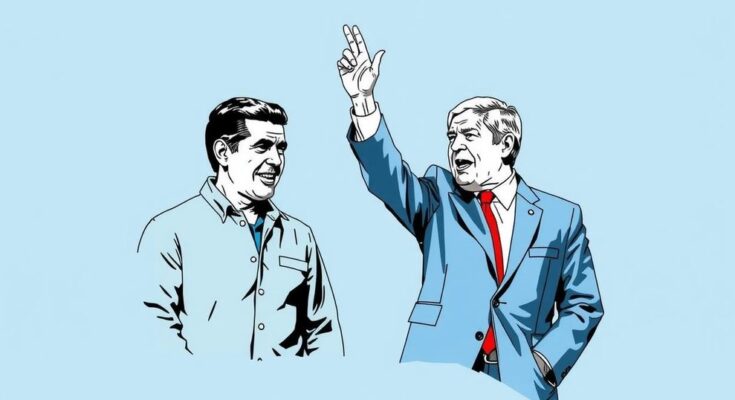Uruguay’s presidential election is set for a runoff on November 24 due to Yamandú Orsi’s failure to secure the necessary 50 percent of votes in the initial round. Orsi, representing the center-left, received approximately 42-44 percent of the vote, while Álvaro Delgado, the center-right candidate, obtained around 27-28 percent. Both candidates are preparing for an intense final campaign push in the lead-up to the runoff.
Uruguay’s presidential election has advanced to a runoff scheduled for November 24, following a recent voting round in which Yamandú Orsi, the candidate from the center-left Broad Front alliance, emerged as the frontrunner. Despite his lead, Mr. Orsi did not secure the necessary 50 percent of the votes required for a decisive victory. As the counting of ballots exceeded 80 percent, it became clear that Mr. Orsi received between 42 and 44 percent of the votes, while his opponent, Álvaro Delgado of the ruling center-right coalition, garnered 27 to 28 percent. Both candidates have addressed their supporters, acknowledging the anticipated runoff. Mr. Orsi, who previously served as mayor and is recognized for his history in education, advocated for enhanced social welfare and a more robust safety net in response to the economic conditions faced by citizens in one of Latin America’s more affluent nations. Emphasizing the urgency of the campaign, he stated to a cheering crowd in Montevideo that they were prepared for an intensive final push over the next 27 days until the runoff vote.
Uruguay, a nation known for its stable democracy and progressive policies, has a history of competitive elections, particularly between its center-left Broad Front and center-right parties. The results from this election demonstrate a split electorate, with voters showing a desire for social reforms amid rising living costs. The presidential election is crucial as it determines the direction of national policy, especially regarding social services amid economic challenges.
In summary, the first round of Uruguay’s presidential election indicated a significant voter inclination towards the center-left, but the absence of an outright victor necessitates a runoff. With Yamandú Orsi leading, the election reflects broader socioeconomic concerns among the populace, suggesting that the upcoming campaign period will be intensely contested as both candidates prepare for the critical vote on November 24. The engagement of the candidates and their supporters will likely influence public sentiment in the final weeks leading up to the election.
Original Source: www.nytimes.com




